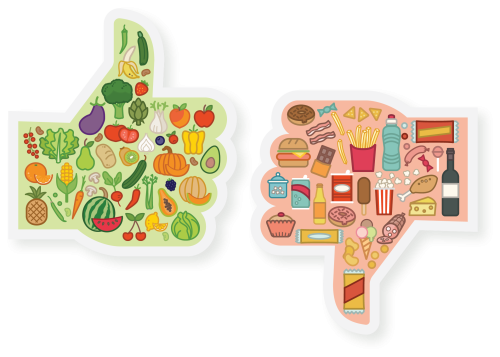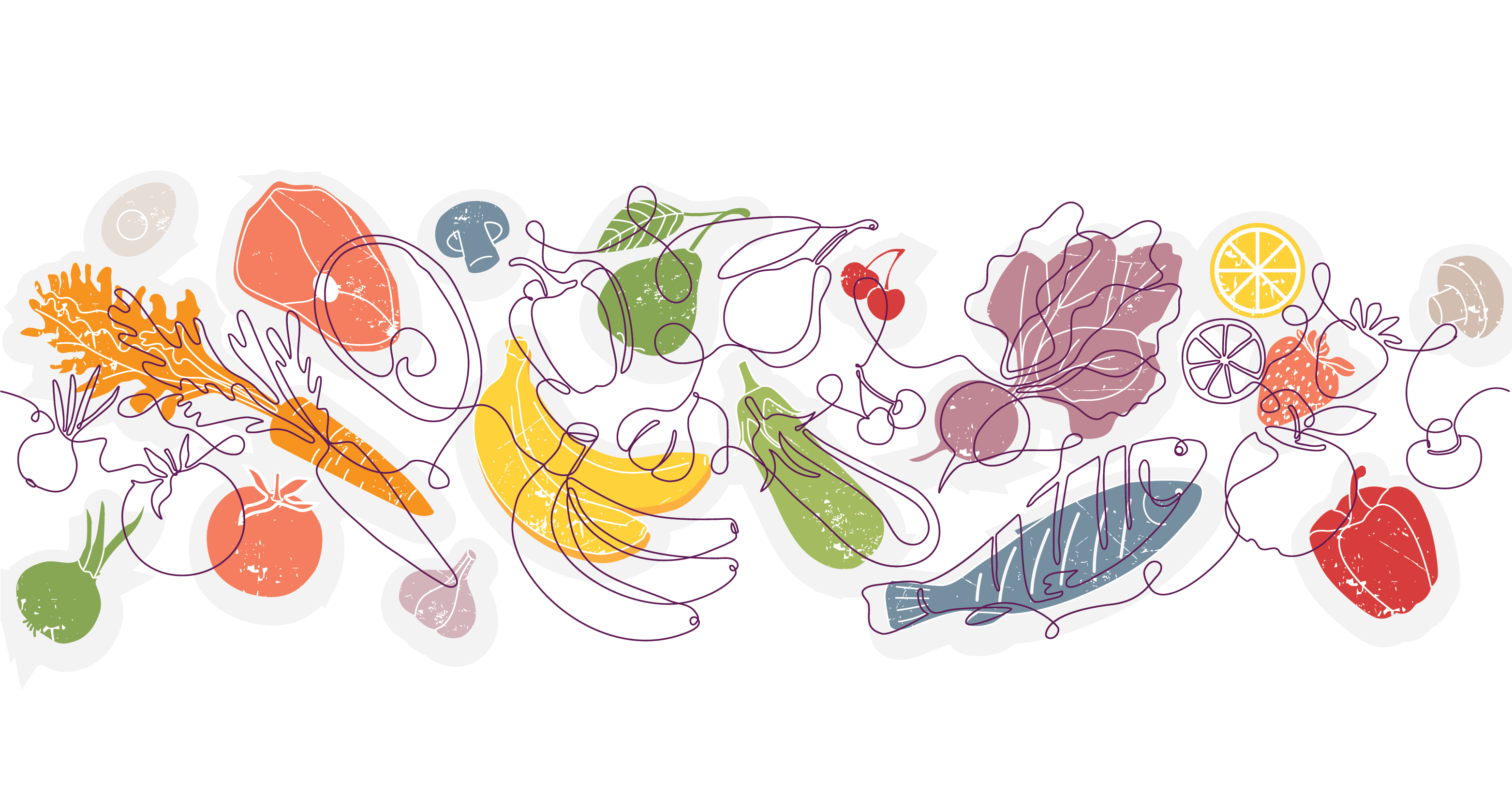The Emerging Field of Nutritional Psychiatry: What Mental Health Providers Need to Know
March is National Nutrition Month, an annual campaign created by the Academy of Nutrition and Dietetics that highlights the impact of informed food choices on overall health. This is an opportunity for mental health providers to explore the growing body of research linking diet to mental well-being and to guide their clients in making meaningful dietary changes. The emerging field of nutritional psychiatry further reinforces how food influences brain function, mood, and mental health, making it an essential consideration in mental health care.
A Brief History of Nutritional Psychiatry
The idea that food impacts mental health is not new. Ancient medicinal traditions like Ayurveda and Traditional Chinese Medicine have long emphasized the importance of diet in maintaining emotional and psychological balance. However, modern psychiatry largely overlooked this connection until more recent decades.

The turning point came in the early 2000s with epidemiological studies showing correlations between dietary patterns and mental health outcomes. Research from organizations such as the Food & Mood Centre at Deakin University in Australia and Harvard’s Nutritional Psychiatry research group has helped shape the field. Studies have linked poor diet—high in processed foods and refined sugars—to increased risks of depression, anxiety, and cognitive decline, while diets rich in whole foods, omega-3 fatty acids, and antioxidants are associated with improved mental health.
Where Nutritional Psychiatry Stands Today
Today, nutritional psychiatry is gaining mainstream recognition. Leading mental health institutions and research centers continue to explore how diet can be used as both a preventive and adjunctive treatment for mental illness. Some key findings include:
![]()
Gut-Brain Connection: The gut microbiome plays a critical role in mental health, influencing neurotransmitter production and inflammation levels.
![]()
Anti-Inflammatory Diets: Diets rich in fruits, vegetables, whole grains, and healthy fats help reduce neuroinflammation, which is linked to depression and anxiety.
![]()
Omega-3 Fatty Acids: Found in fish and flaxseeds, omega-3s support brain function and may reduce symptoms of mood disorders.
![]()
Micronutrients and Mental Health: Deficiencies in vitamins like B12, D, and magnesium have been associated with depressive symptoms.
Leading Diets to Support Mental Well-Being
Emerging research highlights several dietary patterns that support brain health and may help reduce the risk of mental health disorders. Below are the leading evidence-based diets to support mental well-being.

The Mediterranean Diet
Rich in whole grains, lean proteins, healthy fats (such as olive oil), and an abundance of fruits and vegetables, the Mediterranean diet is one of the most extensively researched dietary patterns for mental health. Studies have linked it to lower levels of depression and cognitive decline, likely due to its anti-inflammatory and neuroprotective properties.
The DASH Diet (Dietary Approaches to Stop Hypertension)
Originally designed for heart health, the DASH diet focuses on whole foods, lean proteins, and reduced sodium. While its primary goal is to lower blood pressure, research suggests it may also help regulate mood and reduce anxiety by promoting cardiovascular health and stabilizing blood sugar levels.
The MIND Diet (Mediterranean-DASH Diet Intervention for Neurodegenerative Delay)
A hybrid of the Mediterranean and DASH diets, the MIND diet was developed specifically to support brain health and cognitive function. It emphasizes brain-boosting foods like leafy greens, berries, nuts, and omega-3-rich fish. Research has shown that the MIND diet can slow cognitive decline and may help reduce the risk of depression, making it one of the most promising dietary patterns for mental health.
The Anti-Inflammatory Diet
Chronic inflammation has been increasingly linked to mood disorders such as depression and anxiety. The anti-inflammatory diet focuses on foods that combat inflammation, including turmeric, ginger, leafy greens, and fatty fish. While more research is needed, preliminary studies suggest that reducing systemic inflammation through diet may improve mental resilience and emotional regulation.
Encouraging clients to adopt a nutrient-dense diet can be a valuable complement to traditional mental health interventions. Small, sustainable changes—such as increasing intake of leafy greens, healthy fats, and omega-3s—can support overall well-being and brain function. As research in nutritional psychiatry continues to grow, integrating dietary guidance into mental health care may offer an additional pathway to resilience and recovery.
Best Practices for Mental Health Providers
Mental health providers do not need to become nutritionists, but incorporating nutritional psychiatry principles into clinical practice can enhance patient care. Here are some ways to integrate this knowledge:
![]()
Ask About Diet – During assessments, inquire about eating habits and access to whole-food options, as poor nutrition can contribute to mental health symptoms.
![]()
Educate Clients – Find reliable health education resources that provide general guidance on the benefits of whole foods, hydration, and gut health.
![]() Collaborate with Nutrition Experts – Work alongside registered dietitians and integrative medicine practitioners to offer comprehensive care and make appropriate referrals for clients who need specialized nutritional or wellness support.
Collaborate with Nutrition Experts – Work alongside registered dietitians and integrative medicine practitioners to offer comprehensive care and make appropriate referrals for clients who need specialized nutritional or wellness support.
![]() Encourage Small, Sustainable Changes – Suggest realistic dietary adjustments, such as adding more fiber or reducing processed sugar intake.
Encourage Small, Sustainable Changes – Suggest realistic dietary adjustments, such as adding more fiber or reducing processed sugar intake.
![]()
Stay Informed – Keep up with emerging research to understand how nutritional interventions may complement traditional mental health treatments.
As research continues to unfold, nutritional psychiatry will likely play a larger role in mental health care. By staying informed and integrating dietary awareness into practice, mental health providers can better support their clients in achieving holistic well-being. If you’re looking for more information on the connection between nutrition and mental health, check out Nutritional Psychiatry, edited by Dr. Ted Dinan and published by Cambridge University Press. Additionally, you can listen to CASAT Conversations, Season 5, Episode 4, titled Food for Thought: Unraveling the Gut-Mind Connection for Optimal Mental Well-being, for a deeper dive into the topic.
Are you incorporating nutritional psychiatry into your practice? Have you noticed changes in your clients’ mental health based on their eating patterns? Share your experiences and insights in the comments below!
References
Adan, R. A. H., van der Beek, E. M., Buitelaar, J. K., Cryan, J. F., Hebebrand, J., Higgs, S., Schellekens, H., & Dickson, S. L. (2019). Nutritional psychiatry: Towards improving mental health by what you eat. European Neuropsychopharmacology, 29(12), 1321-1332. https://doi.org/10.1016/j.euroneuro.2019.09.001
Dinan, T. G. (Ed.). (2019). Nutritional psychiatry: Understanding the role of nutrition in mental health. Cambridge University Press.
Logan AC, Jacka FN. Nutritional psychiatry research: an emerging discipline and its intersection with global urbanization, environmental challenges and the evolutionary mismatch. J Physiol Anthropol. 2014 Jul 24;33(1):22. doi: 10.1186/1880-6805-33-22. PMID: 25060574; PMCID: PMC4131231.
OpenAI. (2025). ChatGPT (Version 4) [AI language model]. Assisted in generating ideas and editing content for improved flow in the blog post on nutritional psychiatry. Retrieved March 24, 2025, from https://chat.openai.com
Blog Post Tags:
Related Blog Posts
Related Learning Labs
Related Resources
.
- Buscar Tratamiento de Calidad para Trastornos de uso de Sustancia (Finding Quality Treatment for Substance Use Disorders Spanish Version)
- Finding Quality Treatment for Substance Use Disorders
- Focus On Prevention: Strategies and Programs to Prevent Substance Use
- Monthly Variation in Substance Use Initiation Among Full-Time College Students
- The National Survey on Drug Use and Health (NSDUH) Report: Monthly Variation in Substance Use Initiation Among Adolescents







